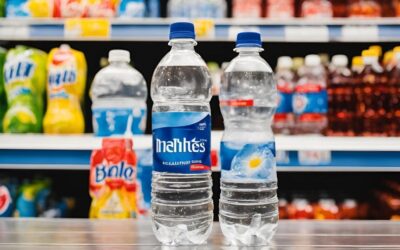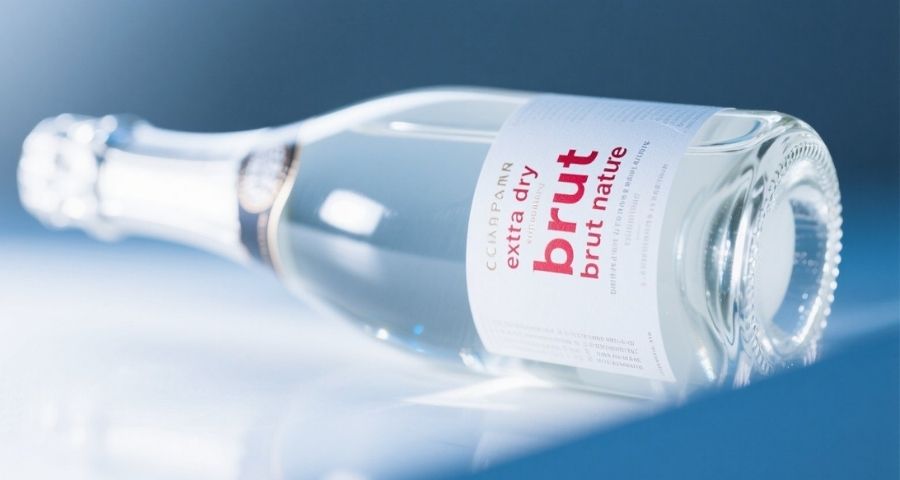Something as seemingly simple as bottled Water can be tricky for health-conscious consumers. With endless brands and claims plastered across store shelves, you might wonder—which bottled Water is the healthiest to drink?
This blog dives into the key factors determining what makes a bottled water option healthy. From types of Water (spring, purified, or alkaline) to mineral content and pH levels, we’ll help you eliminate the confusion and identify the best choice for your hydration needs.
Why Healthy Water Matters

Staying hydrated is crucial to maintaining overall health. Water supports bodily functions—like temperature regulation and digestion—flushes out toxins, ensures proper organ performance, and keeps your skin glowing. However, not all bottled Water is created equal. Beyond thirst-quenching, healthy Water should contribute positively to your well-being, providing essential minerals without harmful additives or contaminants.
Unfortunately, some bottled water brands hide behind flashy marketing while offering little benefit—or worse, adding substances you don’t need. Understanding what to look for ensures that every sip supports your health goals.
Factors to Consider When Choosing Bottled Water
When evaluating the healthiest bottled Water, there are three key factors to keep in mind:
1. The Water Source
One of the first things to check is where the Water comes from. There are typically three main types of bottled Water based on source:

Spring Water: This Water comes from natural sources like underground springs and aquifers. It’s generally rich in minerals like calcium and magnesium. Examples include Poland Spring and Evian.
Purified Water: Often tap Water that’s undergone rigorous filtration to remove impurities. While it’s clean, the process can strip out beneficial minerals. Brands like Aquafina and Dasani fall here.
Alkaline Water: Water enhanced to have a higher pH level, aimed at balancing acidity in the body. Some naturally alkaline waters, such as Essentia, boast origins from underground springs.
2. Mineral Content
Minerals play an essential role in determining water quality:
- Calcium supports bone health and muscle functionality.
- Magnesium aids in energy production and nerve regulation.
- Sodium is fine in small amounts but best avoided in high levels due to links to hypertension.
Some brands list their mineral compositions on the label (look for a breakdown called “TDS,” or Total Dissolved Solids). For example, Gerolsteiner Mineral Water is famous for its natural mineral richness.
3. pH Levels
The pH level measures Water’s acidity or alkalinity on a scale of 0 to 14. Neutral Water has a pH of around 7. Alkaline bottled water—with a pH higher than 7—is popular among health enthusiasts for its claims of neutralizing acidity in the body and improving hydration. Examples include brands like Essentia and Core.
However, balance is key. Excessively high or low pH levels may disrupt your body’s natural harmony, so it’s best to stick with Water that stays within a comfortable range.
4. Environmental and Ethical Practices
Think beyond health benefits; consider the planet, too. Choose brands committed to sustainability and eco-friendly packaging.
Some great options include:
- JUST Water, which offers spring water in recyclable cartons.
- Boxed Water Is Better, known for its plant-based bottles.
- Ethos Water, which supports global water projects.
Opting for environmentally conscious brands ensures your choice benefits your health and the planet.
Healthiest Bottled Water Options to Consider
Here’s a breakdown of some leading bottled water brands categorized by their standout features:
Best All-Around
Evian
- Type: Natural Spring Water
- Key Health Benefits: Contains naturally balanced minerals like magnesium and calcium.
- pH Level: 7.2
- Why We Recommend It: Evian’s smooth taste and mineral content make it reliable for hydration.
Gerolsteiner
- Type: Naturally Sparkling Mineral Water
- Key Health Benefits: Packed with calcium, magnesium, and bicarbonates.
- pH Level: Neutral to slightly alkaline (~7.6)
- Why We Recommend It: Ideal for anyone looking for maximum mineral benefits.
Best for Alkalinity
Essential
- Type: Alkaline Water
- Key Health Benefits: Ultra-purified and infused with electrolytes.
- pH Level: 9.5
- Why We Recommend It: Known for its smooth taste and is one of the most accessible alkaline brands.
Core Hydration
- Type: Alkaline Water
- Key Health Benefits: Enhanced with electrolytes and minerals.
- pH Level: Exactly 7.4 (matches your body’s natural pH level).
- Why We Recommend It: Perfect for promoting balance while staying non-acidic.
Best for Purity
Icelandic Glacial
- Type: Spring Water
- Key Health Benefits: Exceptionally low Total Dissolved Solids (TDS).
- pH Level: 8.4
- Why We Recommend It: Harvested naturally from Iceland’s pristine spring, this Water is ultra-pure yet alkaline.
Eco-Friendly Champions
JUST Water
- Type: Spring Water
- Key Health Benefits: Provides essential minerals and uses eco-friendly packaging (paper-based cartons).
- Why We Recommend It: A feel-good choice for both body and planet.
Boxed Water Is Better
- Type: Purified Water
- Key Health Benefits: Clean and straightforward without added sugars or chemicals.
- Why We Recommend It: Prioritizes replenishing forests and oceans as part of their mission.
Bottled Water to Avoid
Not all bottled Water lives up to the “healthy” label. Here are some red flags to watch for:
Added Sugars: Avoid waters marketed as” ” flavored,” which may contain sugars and artificial sweeteners (e.g., VitaminWater).
Excessive Sodium: While a pinch of sodium can enhance taste, too much negates health benefits.
Plastic Packaging: Brands prioritizing heavy single-use plastic impact the environment and your body, as there’s increasing evidence of microplastics leaching into bottled Water.
Always check ingredient labels to ensure you’re getting pure hydration without unnecessary additives.
Tips for Making the Healthiest Choice
Read the Label – Look for key information like mineral content, pH levels, and any added ingredients.
Look for Certifications – Check for authenticity marks such as NSF/ANSI standards or certifications for BPA-free packaging.
Use a Water Filter – If bottled options feel overwhelming, a home water filter can be a cost-efficient and eco-friendly alternative to meet hydration needs.
It’s Time to Sip Smarter
Choosing the healthiest bottled Water ultimately depends on your personal needs—whether you prioritize mineral content, pH balance, or eco-conscious packaging. With this guide, you can now make an informed, refreshing choice.
Remember, hydration is the foundation of well-being. Keep that water bottle handy; you’re already winning half the battle.
Frequently Asked Questions
1. What is the ideal pH level for bottled Water?
The ideal pH level for bottled Water typically falls between 6.5 and 8.5. This range ensures the Water is neither too acidic nor too alkaline, maintaining a balance that is safe and generally considered more pleasant for consumption.
2. How can I tell if bottled Water is BPA-free?
To confirm if a bottle is BPA-free, look for labels or certifications on the packaging that explicitly state it. Many manufacturers now highlight this feature as part of their eco-friendly or health-conscious initiatives.
3. Is mineral-rich Water healthier than regular Water?
Mineral-rich Water can provide added benefits by supplementing essential minerals like calcium and magnesium. However, the health impact largely depends on your dietary needs and lifestyle. Consult with a healthcare professional if you are unsure.
4. What is the best way to store bottled Water?
Store bottled Water in a cool, dark place away from direct sunlight or chemicals. This helps maintain its quality and prevents the packaging from deteriorating.
5. Does bottled Water expire?
While Water does not expire, the packaging can impact its taste and safety over time. Most bottled Water comes with a “best by” date to ensure optimal quality. Always check this date before consumption.
Final Thoughts
Staying hydrated is essential for overall health and well-being. Whether you choose bottled Water for its convenience and taste or tap Water for its accessibility, the key is to drink enough Water throughout the day. Be mindful of the environmental impact of your choices and explore sustainable practices such as recycling or using reusable bottles. By making informed decisions, you can prioritize your health and the planet.
Stay healthy, stay hydrated!



